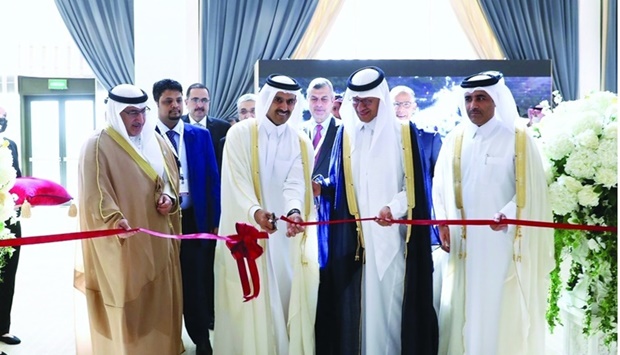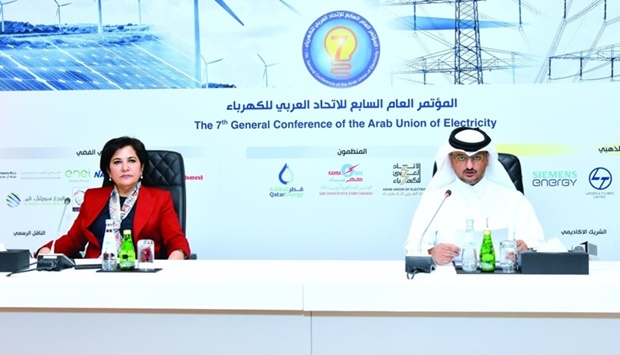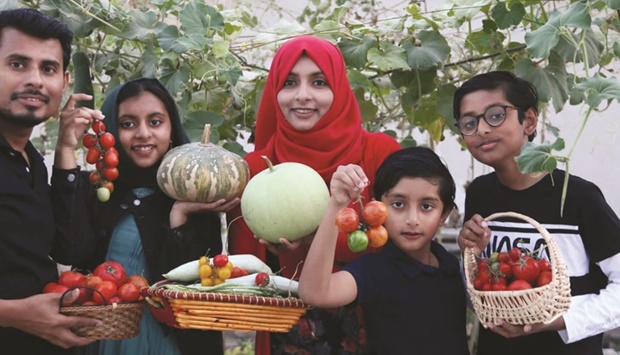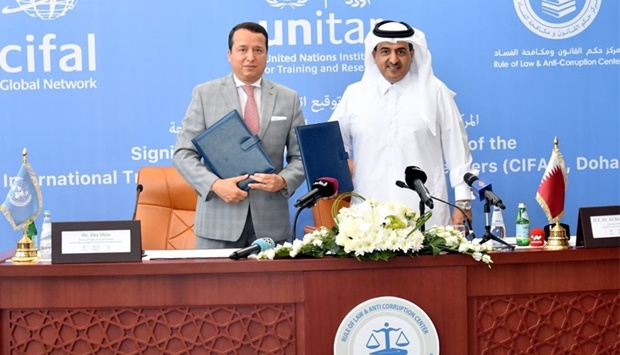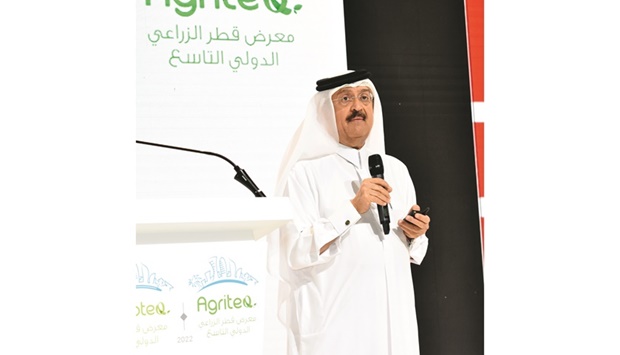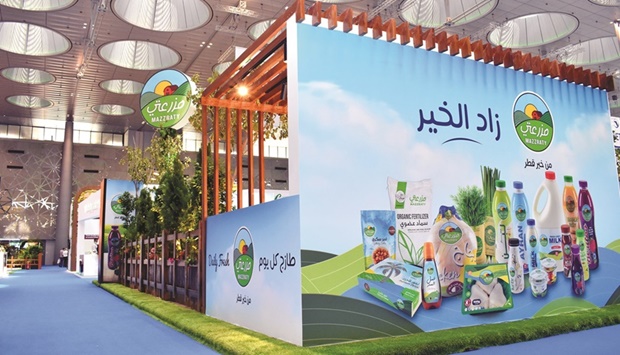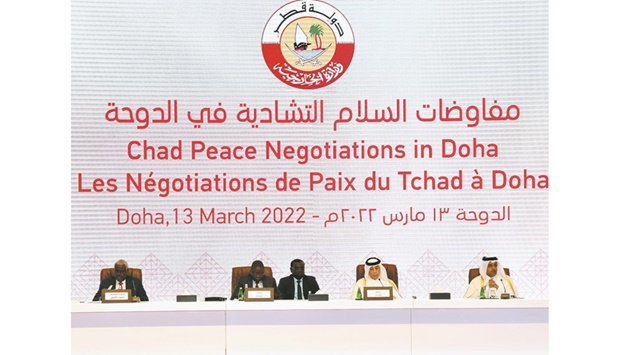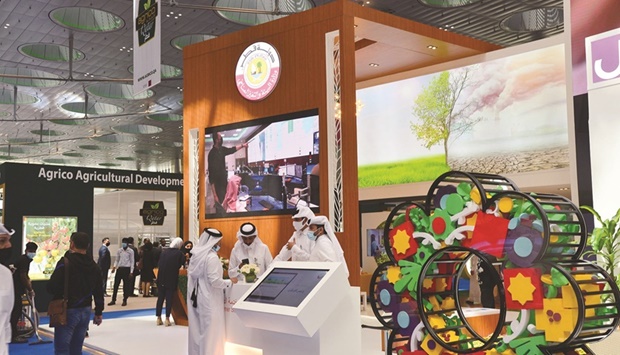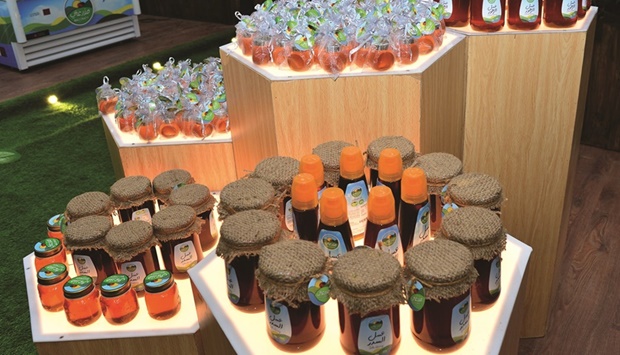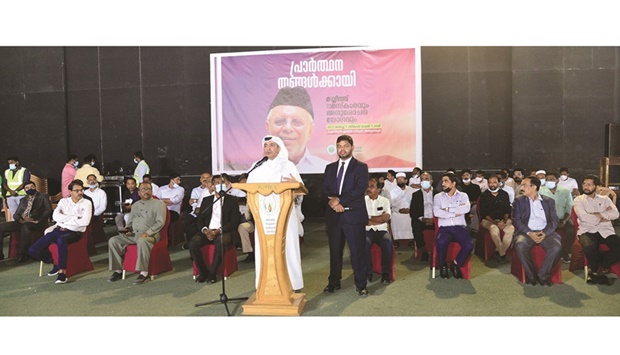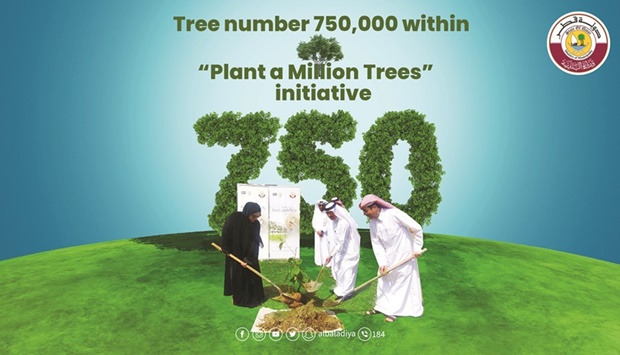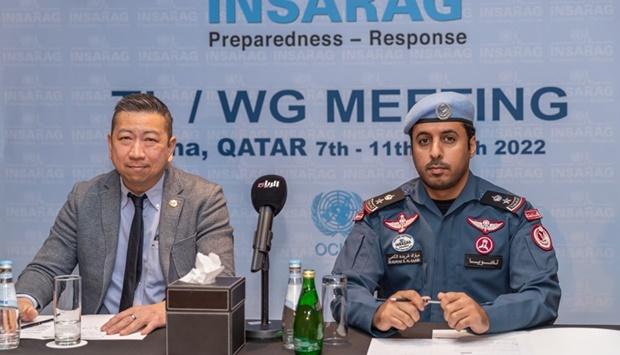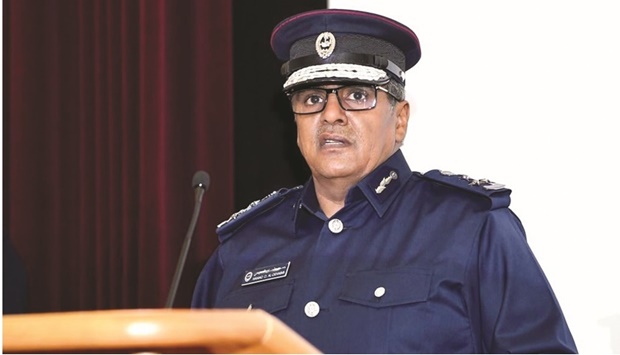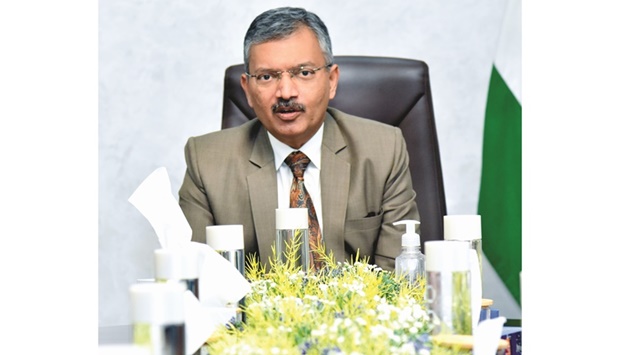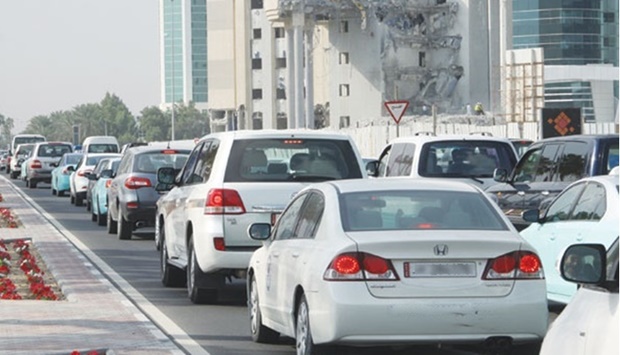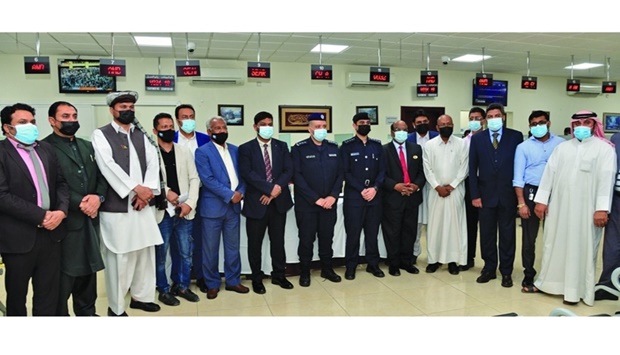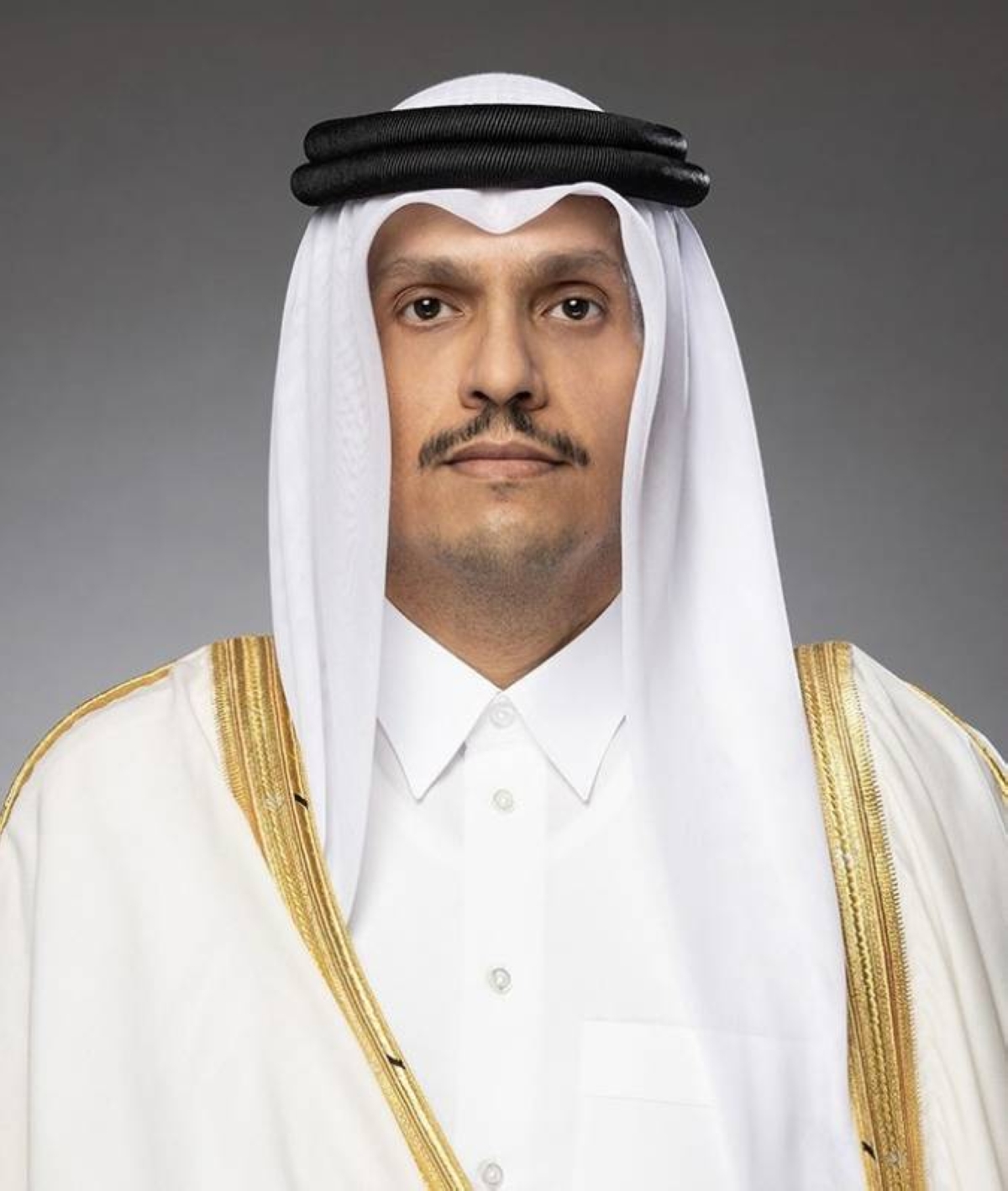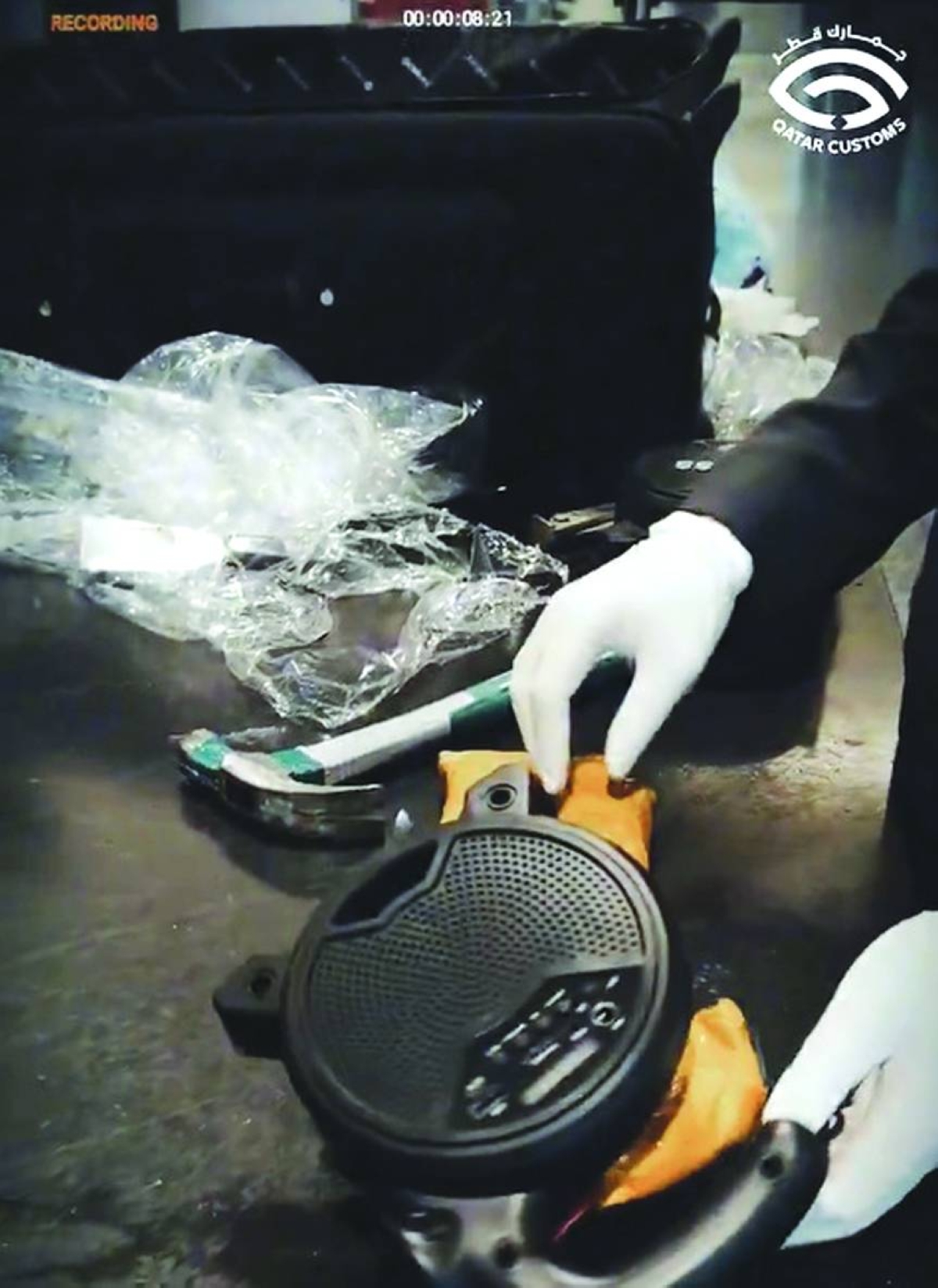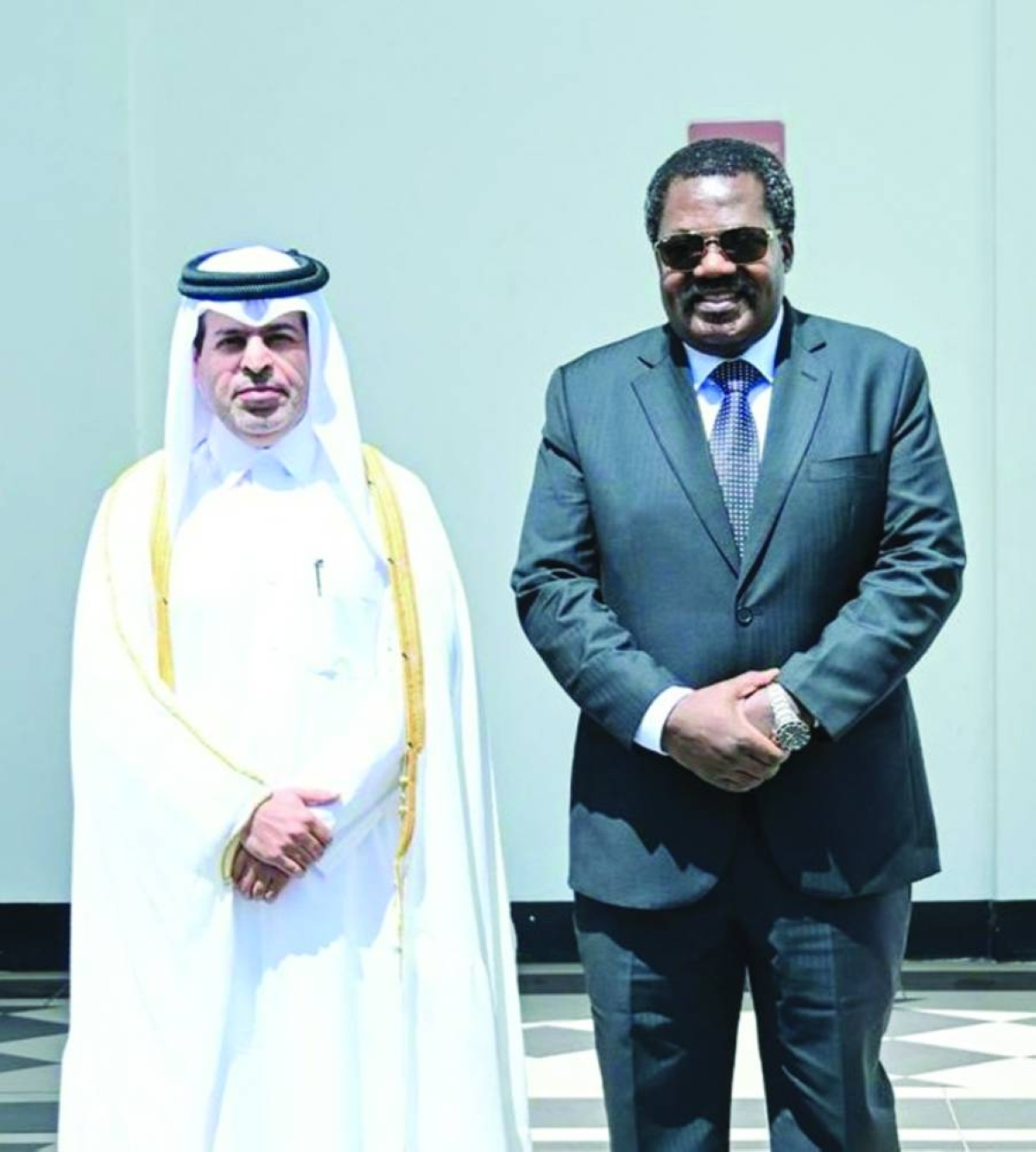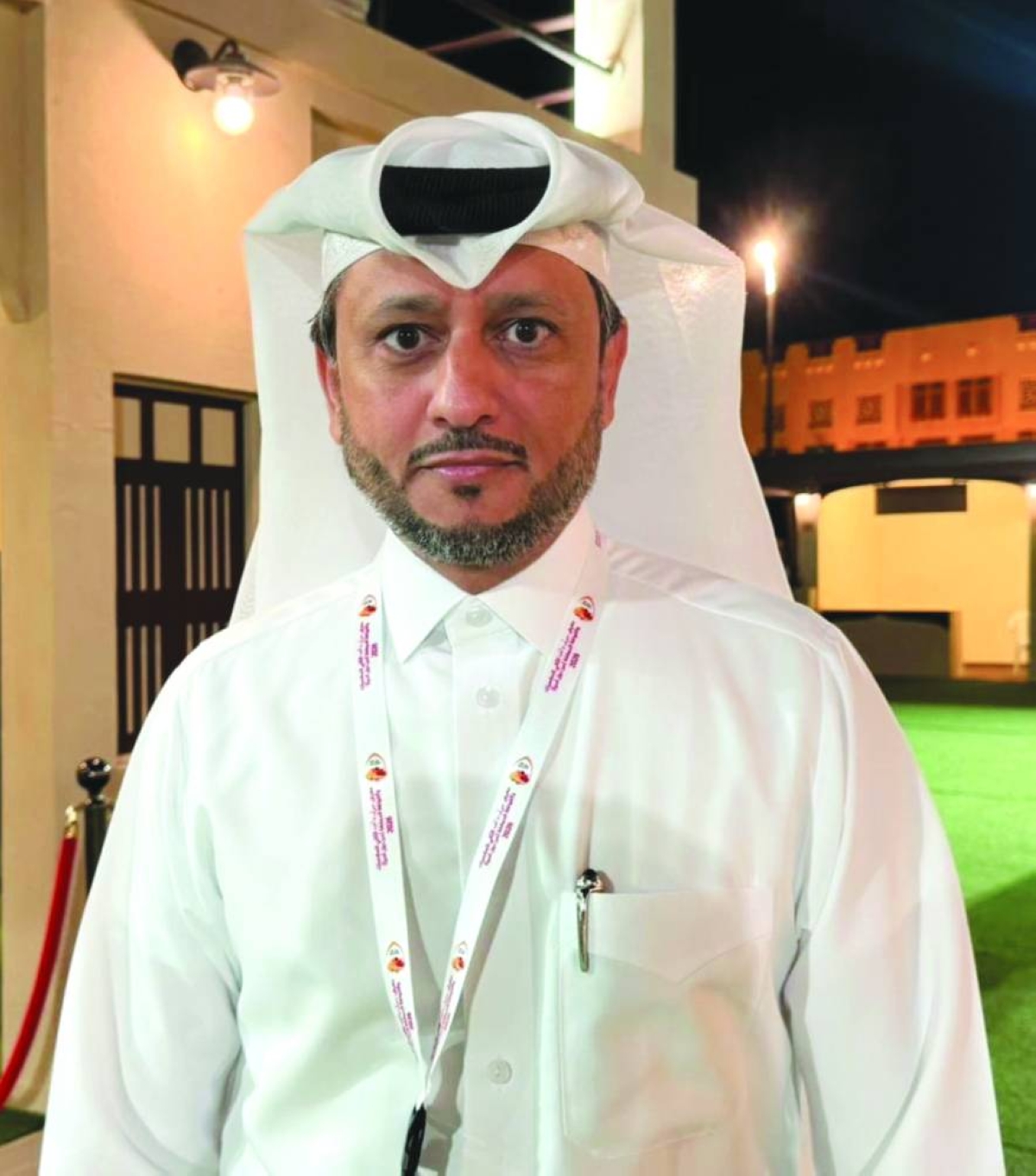* HE the Minister of State for Energy Affairs Saad bin Sherida al-Kaabi inaugurates three-day conference The seventh General Conference of the Arab Union of Electricity began Sunday at Sheraton Doha under the patronage of HE the Prime Minister and Minister of Interior Sheikh Khalid bin Khalifa bin Abdulaziz al-Thani. HE the Minister of State for Energy Affairs, Saad bin Sherida al-Kaabi, inaugurated the three-day conference in the presence of Arab ministerial delegations headed by a number of Arab ministers of electricity and energy. Addressing the opening session, HE al-Kaabi noted that the conference provides a platform to shed light on the opportunities and challenges facing the electricity sector, and discuss ways and prospects for its development and advancement to the best levels while ensuring a prosperous future for all Arab communities. HE Saad bin Sherida al-Kaabi addressing the opening session HE al-Kaabi expressed hope about providing an opportunity to form a more profound and accurate vision through the interest and follow-up of the Arab Union of Electricity, with the aim of building a unified Arab strategy based on best practices in the field of energy and renewable energy at the Arab and global levels. “Qatar, as one of the most important energy centres in the world, will work in co-operation with all brothers to raise levels of interest in issues related to electricity while activating joint co-ordination and constructive co-operation through electrical interconnection agreements and projects and strategic energy to support Arab electricity networks, while encouraging investment in the electricity sector in order to keep pace with the global transition to low-carbon energy and the use of renewable energy and cleaner energies, including natural gas,” he said. Dignitaries taking a tour of the event The work of the conference includes extensive sessions that will discuss the future of renewable energies and the possibilities of integrating them into Arab energy systems to convert them into integrated systems. “This is in line with the direction of the Arab Union of Electricity towards striving to achieve environmental sustainability and the development of the energy sectors in order to serve the economy and maintain environmental security by reducing carbon emissions and greenhouse gases, which is considered one of the most important issues at the present time,” he said. HE al-Kaabi said the conference will discuss the development of policies and strategies for the electricity sector in the Arab world, prospects for the common Arab electricity market, and electrical interconnection projects that will play a major role in enhancing prospects for co-operation and reducing the cost of energy production, which will positively affect the selling prices of electrical energy to consumers. The new logo of the Arab Union of Electricity was launched during the opening session. This was followed by the inauguration of the exhibition accompanying the conference and the exhibition of electrical equipment and supplies for the production, transmission and distribution of electricity in the Arab countries in its 10th edition combined with the main exhibition, by HE the Minister of State for Energy Affairs, accompanied by a number of Arab ministers of energy and electricity, Qatar General Electricity & Water Corporation (Kahramaa) president Essa bin Hilal al-Kuwari, who is also the chairman of the Higher Organising Committee of the seventh General Conference of the Arab Union of Electricity, addressed the opening session along with the chairman of the Board of Directors of the Arab Union of Electricity and general director of the National Office for Electricity and Drinking Water in Morocco, Abdel Rahim al-Hafidi, and the director of the Energy Department of the League of Arab States, Jamila Matar.

Shafeeq Alingal
Shafeeq Alingal is a Staff Reporter with Gulf Times. He has mainstream media experience of twelve years. Health, environment and wildlife are among his specialties.
Most Read Stories

